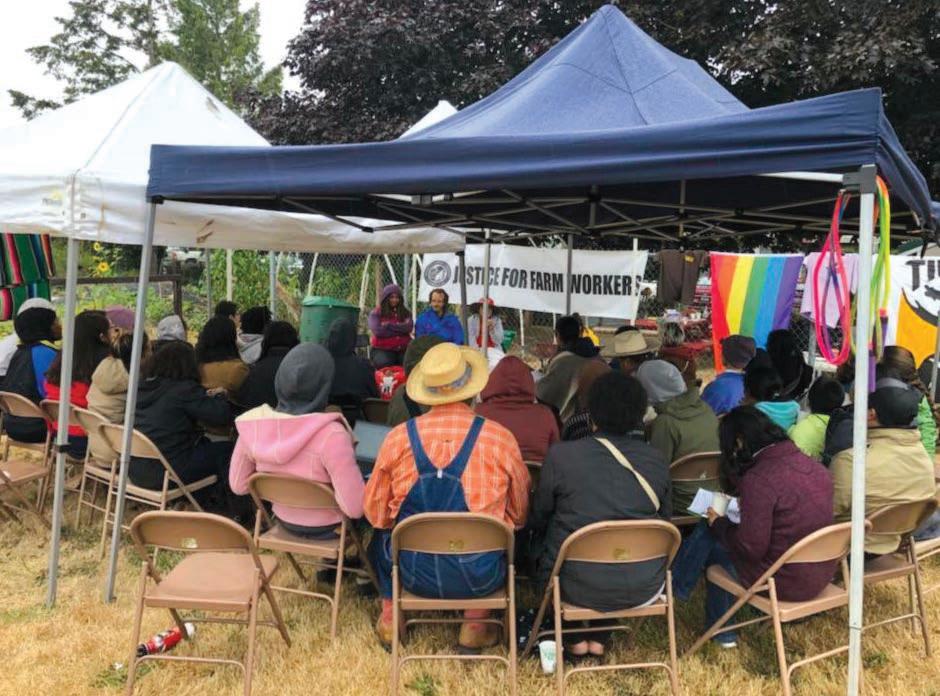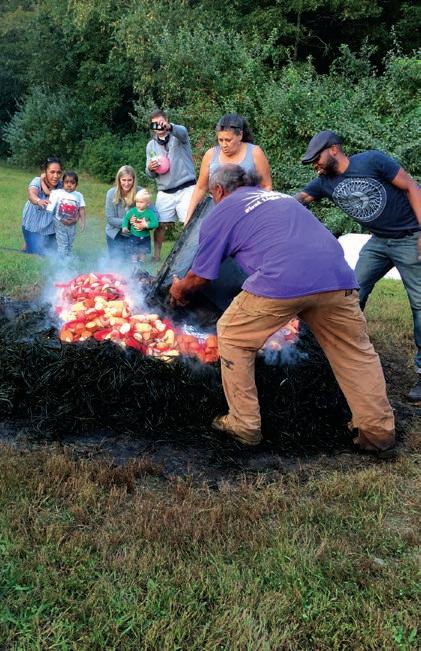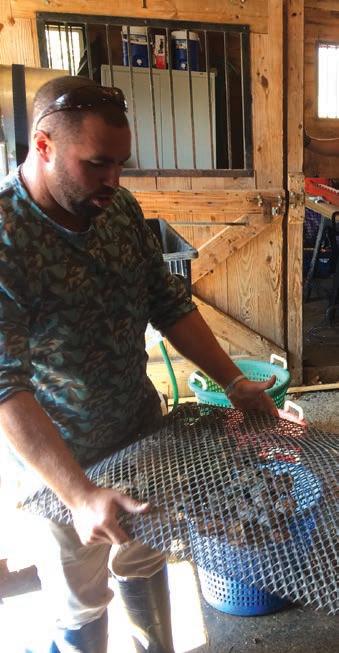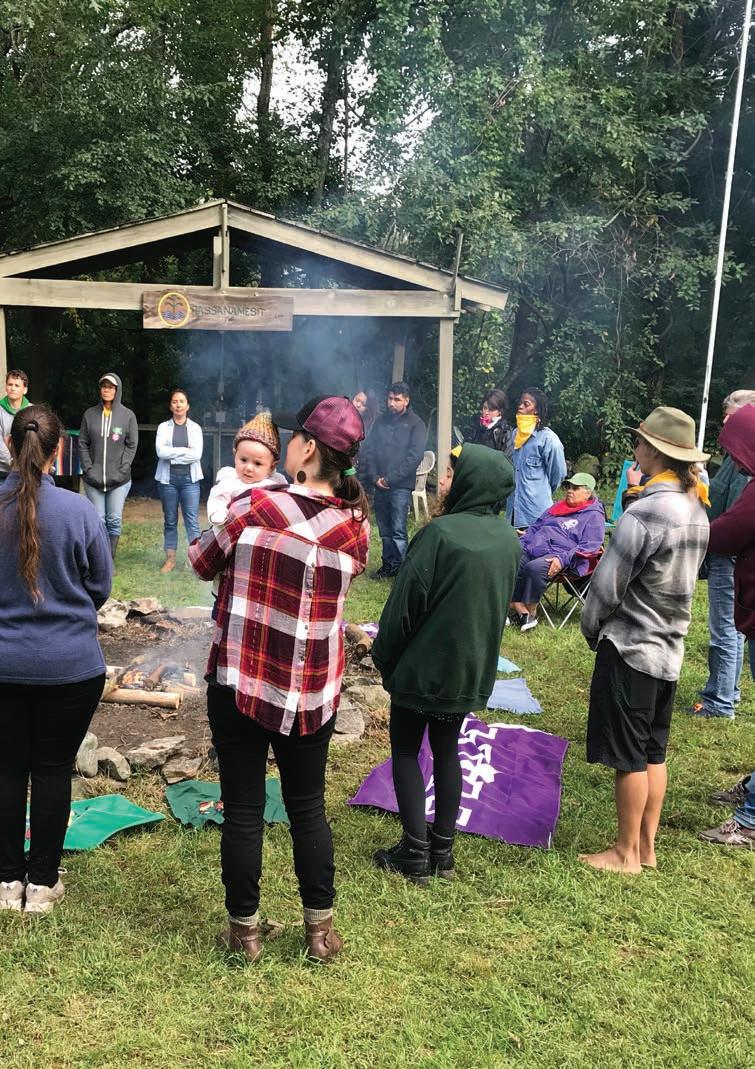
2 minute read
Method and Pedagogy
We need to bring agroecology to a point that people understand the importance of scaling out and scaling up agroecology. The Process is the tool. It is the common struggle of being in revolution and massifying agroecology as a methodology for social transformation and as a way to realize food sovereignty.
— Pierre-Olivier Brassard
Union Paysanne/La Via Campesina (Canada)
Before diving into the description of our experience to scale out agroecology, we believe that it is important to explain how we organize in the People’s Agroecology Process, and to understand our method, methodology and pedagogy. Method is what we do in pursuit of a goal. Methodology is how the method is implemented. Without defining where we want to go, and our political context, it is likely that our method and methodology will be inadequate. In contrast, with a clear sense of our path forward, we can be successful.
Importantly, we believe that the methods we are using must work to dismantle barriers and social divisions that have permeated our organizing, including:
Individualism at the core of the dominant capitalist ideology, enforced through institutions including the non-profit industrial complex;
Competition and the mentality of working in silos, as well as the divisions among communities and working peoples;
Systemic and interpersonal violence of white supremacy and patriarchy;
Fear of repression by state police and military apparatus and;
The culture of U.S. exceptionalism enforced by domestic and international policies (imperialism).
In a broad sense, pedagogy is the way we learn together and “form” ourselves as individuals and collectives towards collective liberation. In the People’s Agroecology Process, our pedagogy is grounded in values of social transformation. It is based on the premise that we make our own history. We are not passive actors. We embrace both theory and practice, and give them equal importance. We also learn by studying and reflecting on the experiences of organizers who came before us.
Photo Credit: Brooke Porter

Photo Credit: Community Alliance for Global Justice
Wampanoag Fisherman Corey Hendricks leading a hands-on workshop on oyster restoration in Cape Cod, Massachusetts at the Northeast Agroecology Encounter in 2018.


Photo Credit: WhyHunger
Wampanoag Fisherman and Bake Master Vernon “Buddy” Pocknett and wife Renee Lopes-Pocknett engage participants on a traditional Wampanoag clambake.
Talking about agroecology in Puerto Rico, you can't just talk about it without addressing Puerto Rico's colonial history. In an Afroecology encounter, you can't talk about food and agriculture without talking about the legacy of slavery, Jim Crow, and white terrorism. On Nipmuc land, it's impossible to talk about agroecology without talking about colonialism and genocide and the past 500 years of Indigenous struggle. And all of these systems are inextricably linked to patriarchy, heterosexism, and all of these dynamics that undermine our communities.










